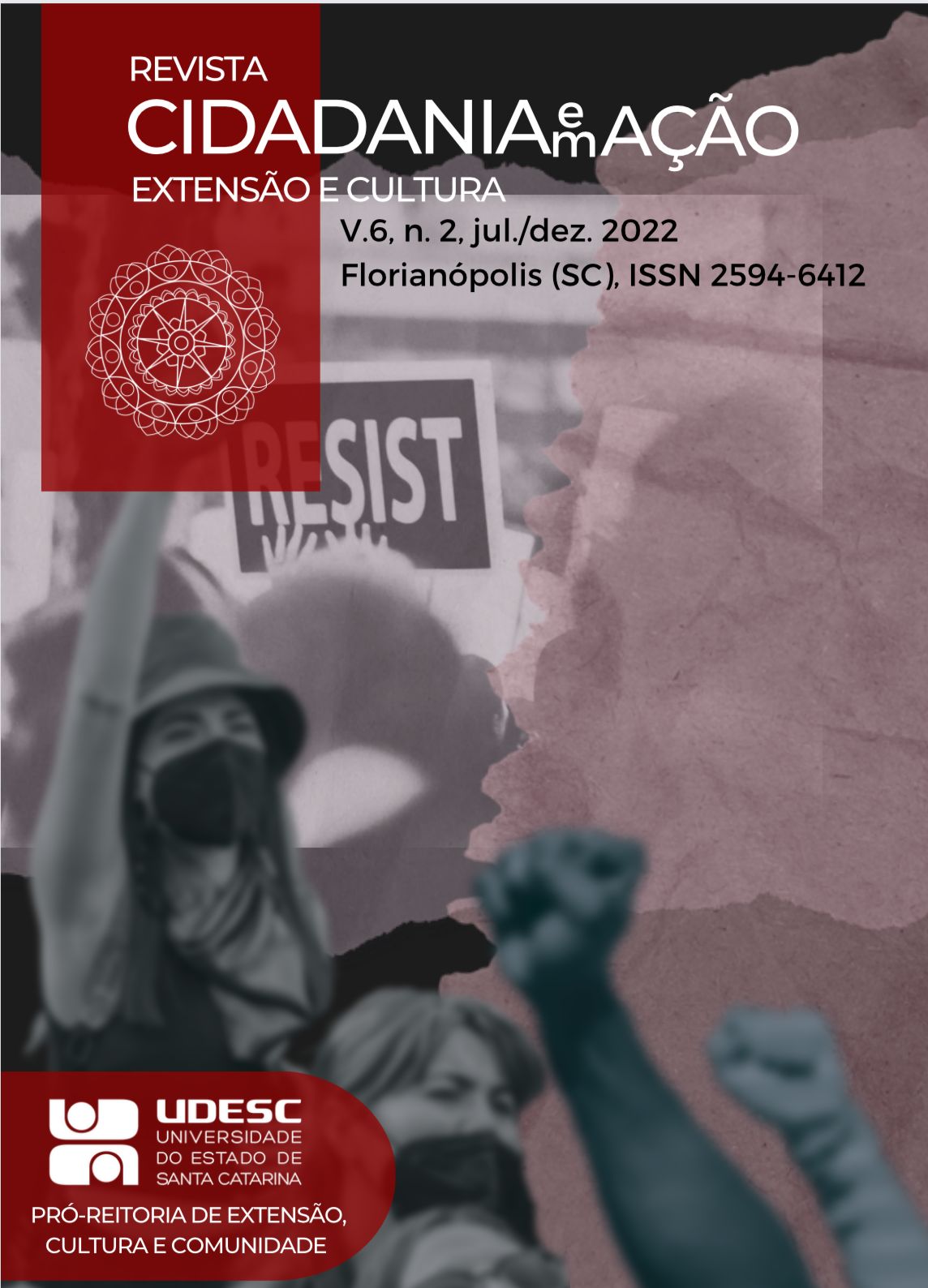Importance of the castration project in the detection of subclinical diseases in company animals
DOI:
https://doi.org/10.5965/cidea.v6i2.22896Keywords:
veterinarian of the collective, vulnerable population, public healthAbstract
Castration: an act of love and prevention” is an extension project that aims to serve the socially vulnerable community, enabling the population control of dogs and cats, the spread of diseases and the awareness of the overpopulation of animals. Social work and veterinary medicine courses lead the project, acting directly in social and clinical screening. The consultations are carried out at the Dom Bosco Veterinary Hospital (HOVET-UCDB), with the participation of 33 academics from the veterinary medicine course, and one from the social service, supervised by four professors, three of whom are veterinarians and one social worker. Divided into teams, the social service and veterinary medicine courses are delegated by the operation of the project, where they work in social and clinical screening. The academics of the social assistance course are responsible for selecting dogs and cats that are part of families with vulnerable social class, and the veterinary students are responsible for clinical care, collection and analysis of laboratory tests, in addition to the surgical procedure and immediate postoperative period. . The main most important alterations in the exams were: anemia, thrombocytopenia, leukopenia, neutrophilia, eosinophilia and monocytosis. In the biochemical examination, he detected liver and kidney lesions, mainly in felines. Among the dogs evaluated, they showed increased ALT, FA, serum urea and creatinine, demonstrating hepatic and renal changes. Detecting various subclinical changes, in visibly healthy animals, of most of the animals in the project showed the extreme importance of having a community service, promoting health in a preventive way. The interest of the participating community is a consequence of the high potential that extension projects can achieve for social demand, exceeding expectations.
Downloads
References
ALMEIDA N. R., SOARES L. C., WARDINI A. B. Alterações clínicas e hematológicas em gatos domésticos naturalmente infectados pelo Vírus da Leucemia Felina (FeLV). Revista de Saúde. v.07, n.1, p. 27-32, 2016.
BUQUERA, L. E. C. et al. Controle populacional de cães e gatos por meio de esterilização cirúrgica e educação para posse responsável. Centro de Ciências Agrárias/Departamento de Ciências Veterinária – Universidade Federal da Paraíba, Areia-PB, Campina Grande-PB, 2013.
MACEDO, J.B. Castração Precoce em Pequenos Animais: Prós e Contras. 42f. 2011. TCC (Pós Graduação em Clínica Medica e Cirúrgica de Pequenos Animais) – Universidade Castelo Branco, Goiânia, 2011.
NASCIMENTO, E.F.; SANTOS, R.L. Patologia da Reprodução nos Animais Domésticos. 2ed, Ed Guanabara-Koogan, 2003
SÍVERES, Luiz. O princípio da aprendizagem na extensão universitária. Extensão universitária como um princípio de aprendizagem. Brasília: Líber Livro, p. 19-33, 2013.
Downloads
Published
How to Cite
Issue
Section
Categories
License
Copyright (c) 2022 Citizenship in Action: Extension and Culture Magazine

This work is licensed under a Creative Commons Attribution 4.0 International License.












